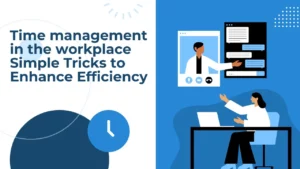What is mental health awareness?
Introduction
According to a recent survey conducted in India’s metro cities and various sectors, 36% of working people suffer from one or more types of mental health issues. These figures reflect the state of employee well-being in the country and call for employers to take a proactive approach to raising mental health awareness and creating conducive work environments.
Mental health conditions are frequently stigmatized in the workplace, but it is critical to prioritize mental health awareness in order to have a happy and productive workplace. To realize this dream of a ‘happy workplace’, employers must begin prioritizing their employees’ well-being and engage in more open and uplifting conversations about mental health.
Breaking the Stigma: Encouraging Open Discussions around Mental Health
In order to create mental health literacy at the workplace, employers need to first destigmatize mental health. This can be accomplished through senior management sharing personal and professional stories about their mental health struggles.
Another way to break the stigma around mental health is by building a supportive ecosystem where everyone feels comfortable sharing their struggles and worries with each other. This will not only help in creating awareness around mental health but can also lead to instilling values of teamwork in employees.
Additionally, it is crucial for employers to support their employees’ wellbeing by putting in place mental health interventions that take their requirements into account.
Know more about Emotional burnout: How to Address It in the Workplace?
Interventions for Workplace Mental Health: A Guide for Employers
According to recent research, employee effectiveness correlates with employee mental health and contributes to overall organizational productivity.For employers seeking organizational productivity, it is critical to first achieve employee mental well-being.
- Corporate Wellness Programs- These programs are designed to help employees achieve work-life balance by implementing strategies such as “wellness related leaves” and “wellness sessions.” The key features of these programs are relaxing activities such as yoga, meditation, and stress management sessions.
- Employee assistance programs (EAPs)- These are workplace interventions that are intended to help staff members deal with personal issues that might be negatively affecting their performance. Since it aids in boosting employee retention, decreasing absenteeism, and increasing productivity among employees, these are advantageous to both employers and employees.
- Employee Wellbeing Programs- These initiatives are intended to address various facets of wellness, such as mental, emotional, and physical health. Employers are expected to provide mental health services to their employees on the same level as other health services under these interventions.
- Peer Support Programs- Organizations must educate their employees on psychological first aid and peer counseling. This will enable employees to demonstrate empathy and compassion for others, ultimately forming an emotional bond between employees and employers and making the workplace a conducive place to work.
Recognizing the Role of Employers in Supporting Mental Health
Every organization must tailor their wellness programs to their employees’ specific needs and preferences, which necessitates an active effort on the part of employers. Here are some strategies that employers can use to foster a safe workplace:
- Encourage Collaboration- Establish team building activities and boost teamwork in the workplace.
- Promote Grievance Resolution Mechanisms- Listen to your employees more and address their concerns.
- Take Feedbacks- Feedback can be a great way to allow employees to express any concerns they may have.
- Flexible Work Options- Introduce flexible work and create more hybrid spaces to promote work-life balance in employees.
- Offer Support- Psychological counseling services and other forms of mental support can help reduce stigma around mental health conditions.
UWC: Creating a Culture of Mental Health Awareness in the Workplace
By fostering a culture of mental health awareness, organizations can reduce stigma, increase employee engagement, and improve overall well-being, which positively impacts productivity and performance.
At United We Care, our team of experienced counselors and wellness professionals strives to provide effective mental health interventions and build more psychologically aware workplaces. Don’t forget to unlock the potential of your organization with a mentally thriving workforce.
Learn more about: Our evidence-based mental health interventions and their impact on employee well-being.
Always Remember…
To prioritize your employees’ mental well-being, connect with us for comprehensive mental health interventions tailored to your organization’s needs. Together, we can create a mentally resilient workforce. Get in touch with us today to discuss how we can support your employees’ mental health.
FAQs
Q. What is the importance of mental health awareness in the workplace?
A. Mental health awareness in the workplace is essential for creating a happy and productive work environment. It helps reduce stigma, promotes well-being, and improves overall employee satisfaction and engagement.
Q. How can employers break the stigma surrounding mental health?
A. Employers can break the stigma by encouraging open discussions about mental health, sharing personal stories, and creating a supportive ecosystem where employees feel comfortable sharing their struggles and worries.
Q. How can employers support their employees’ mental health?
A. Employers can support their employees’ mental health by providing corporate wellness programs, offering employee assistance programs (EAPs), implementing flexible work options, promoting collaboration and teamwork, and providing psychological counseling services.
Q. How can employers foster a safe workplace for mental health?
A. Employers can foster a safe workplace by encouraging collaboration, promoting grievance resolution mechanisms, actively seeking and listening to employee feedback, offering flexible work options, and providing psychological support.
Q. How can organizations benefit from prioritizing employee mental well-being?
A. Prioritizing employee mental well-being leads to increased employee engagement, reduced stigma, improved overall well-being, and enhanced productivity and performance within the organization.











